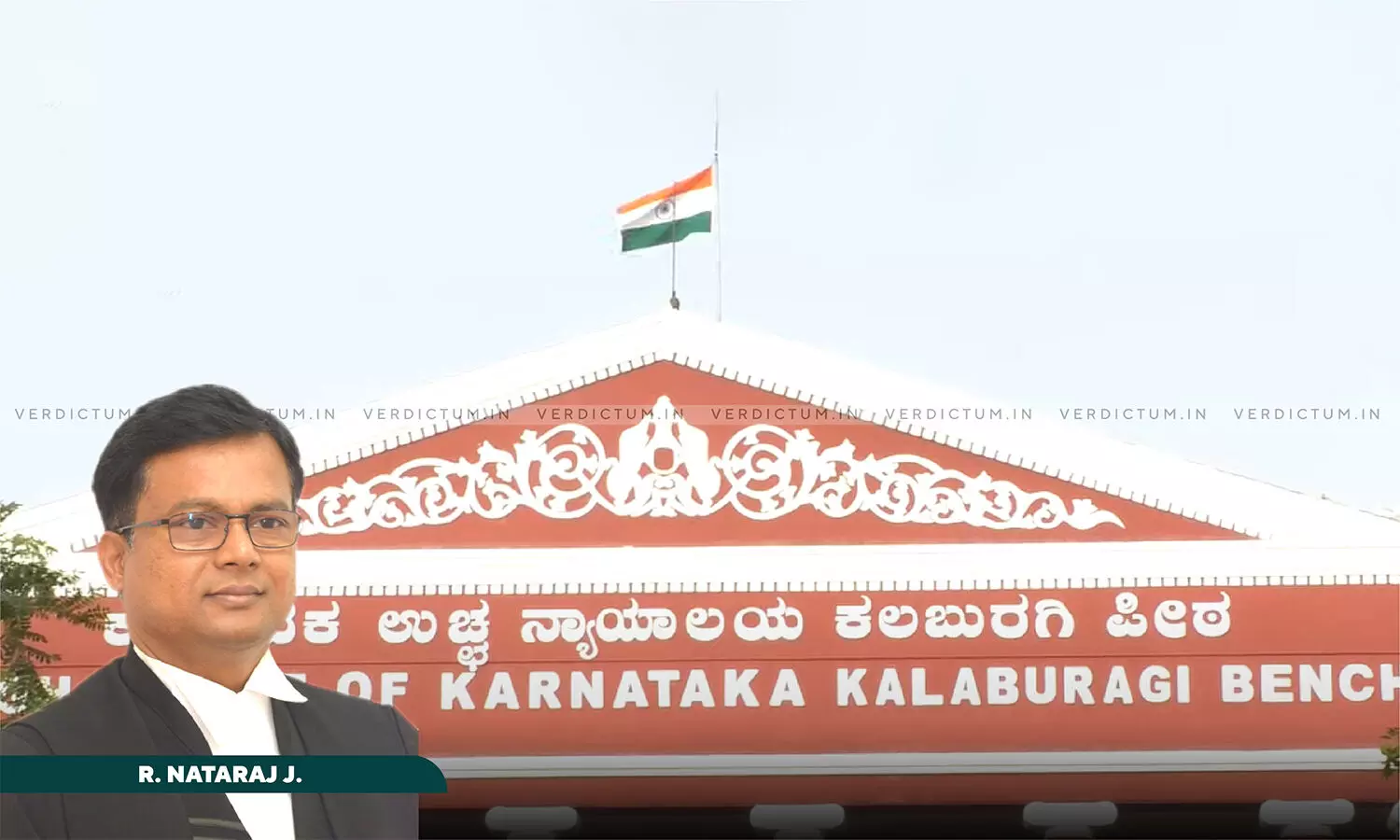
Court Fee Is Valued Depending On Market Value Of Property On Date Of Presentation Of Plaint: Karnataka High Court
 |
|The Karnataka High Court has held that court fee payable under the Karnataka Court Fees And Suit Valuation Act, 1958 depends upon the market value of the property as on the date of presentation of the plaint and averments of the plaint alone must be looked into.
The Court set aside the order passed by the trial court which had directed the plaintiffs in a partition suit to furnish the correct valuation of the suit property based on its market value as recorded in a contested sale deed.
A Single Bench of Justice R. Nataraj observed, “When a suit of this nature was filed, while determining the market value of such property, all that had to be looked into was the averments made in the plaint as to whether the suit had to be valued under Section 35(1) or Section 35 (2) of the Act, 1958. Section 7 of the Act, 1958 declares that where the Court fee is payable under the Act depending on the market value of any property, such valuation shall be determined as on the date of presentation of the plaint, meaning thereby, that it is the averments made in plaint alone that has to be looked into.”
Advocate Sharada Patil Kulgeri appeared for the petitioners, while Advocate Ganesh Naik represented the respondents.
The writ petition was filed by the plaintiffs challenging the order trial court which directed them to revalue the suit property according to the market value mentioned in a sale deed executed by the defendant.
The Trial Court had earlier allowed the defendant’s application under Section 11(2) of the Karnataka Court Fees And Suit Valuation Act, 1958 (the Act) read with Order 7 Rule 11(b) of the CPC to determine the market value of the suit property. The trial court also directed the plaintiffs to furnish the correct value of the suit property based on the market value, mentioned in the sale deed in favour of the defendants.
The plaintiffs challenged the trial court's decision and argued that the valuation of a suit property should be based on the averments made in the plaint and not on the contentions raised by the parties.
The High Court stated that when a suit is filed to determine the market value of a property, all that had to be looked into was the averments made in the plaint as to whether the suit had to be valued under Section 35(1) or Section 35 (2) of the Act
“Therefore, no issue regarding the market value declared by the plaintiffs and the Court fee paid thereon was framed by the Trial Court. The defendant No.1 after the commencement of trial filed the instant application to determine the market value under Section 11 of the Act, 1958 and under order 7 rule 11(b) of CPC. The Trial Court was clearly oblivious of the provisions contained in Section 11(2) of the Act, 1958,” the Court remarked.
Consequently, the Court held, “As the plaintiffs had claimed that the suit property was in their joint possession and that they and defendant Nos.1 were joint tenants cultivating the property, the valuation of the suit under Section 35(2) of the Act, 1958 was correct.”
Accordingly, the High Court set aside the impugned order of the trial court and allowed the petition.
Cause Title: Osmansab & Ors. v. Kasimsab & Ors. (Neutral Citation: 2024:KHC-K:5260)
Appearance:
Petitioners: Advocate Sharada Patil Kulgeri
Respondents: Advocates Ganesh Naik and S. N. Padshetty